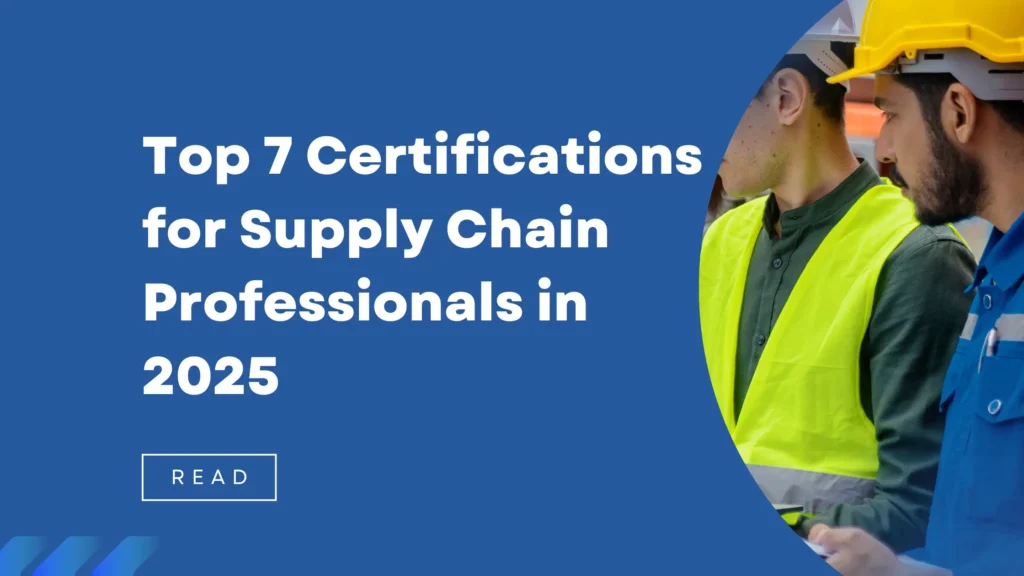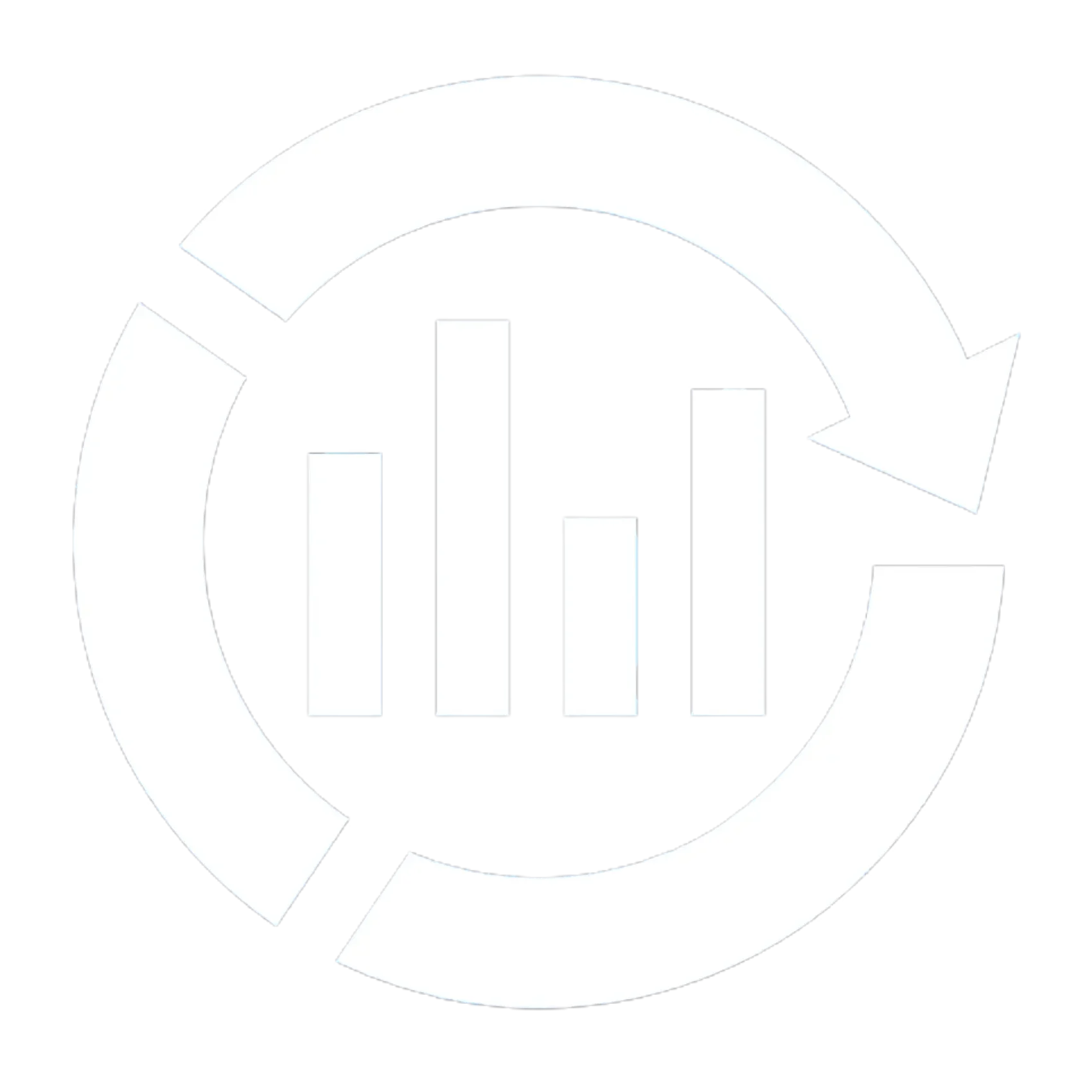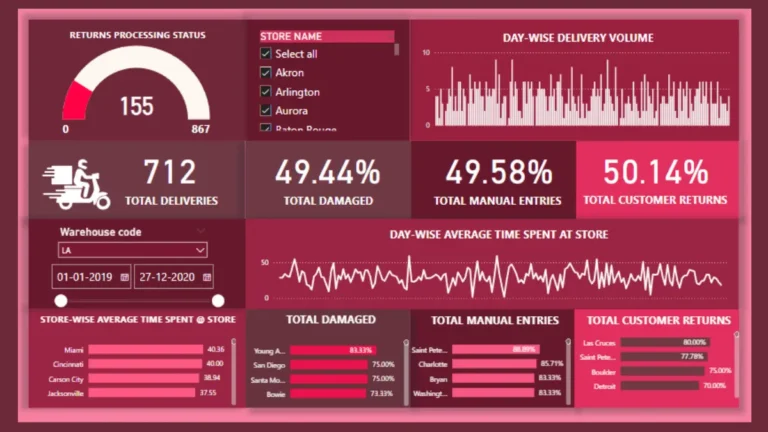The supply chain industry is undergoing a digital transformation—fueled by AI, e-commerce expansion, and global disruptions. As companies compete for efficiency and resilience, supply chain professionals must continually update their skills. One of the most strategic moves you can make in 2025? Earning a respected certification.

In this guide, we break down the most relevant supply chain certifications that are helping professionals boost their resumes, transition into high-paying roles, and stay future-ready.
Why Supply Chain Certifications Matter in 2025
Certifications in the supply chain field have evolved from being nice-to-have credentials into essential tools for career progression. In a field that touches every product’s lifecycle—from raw material sourcing to final delivery—employers are prioritizing candidates who have proven, up-to-date expertise.
Beyond building credibility, certifications demonstrate your commitment to learning, signal domain mastery to employers, and can be pivotal in promotions, international mobility, and salary negotiations.
Employers Prefer Certified Talent
According to 2024 LinkedIn job data, over 60% of supply chain roles now list certifications as either a requirement or a strong preference. This signals to recruiters that you’ve mastered best practices and are serious about your career.
You’ll Earn More
A recent ASCM salary report found that certified supply chain professionals earn 15–20% more than their non-certified peers. Furthermore, some credentials—like the CSCP and CAP—can lead to $100K+ roles in Fortune 500 companies.
Greater Career Mobility
Certifications open doors across industries—from aerospace and automotive to healthcare and retail. In addition, many are globally recognized, which supports international career growth.
Choosing the Right Certification
Before diving into the top programs, let’s look at a few factors that can help you pick the right one:
- Career Stage: Are you just starting, or do you have 5+ years of experience?
- Area of Interest: Analytics, procurement, logistics, or production?
- Industry Needs: Which certifications are employers asking for in your target roles?
- Budget: Some programs cost a few hundred dollars, while others exceed $2,500.
Supply Chain Certifications 2025 – Comparison Table
| Certification | Best For | Estimated Cost | Provider | Focus Area | Experience Required |
|---|---|---|---|---|---|
| CSCP | Mid-career professionals | $2,000–$3,000 | ASCM | End-to-end supply chain | Recommended 3+ years |
| CPIM | Manufacturing roles | $1,500–$2,500 | ASCM | Inventory, MRP | Entry to mid-level |
| Six Sigma GB | Process optimization | $400–$2,000 | ASQ/Coursera/etc. | Lean, process quality | None to 2+ years |
| CPSM | Procurement and sourcing | ~$2,000 | ISM | Supplier management | 3+ years required |
| SCPro™ | Consultants and planners | ~$975+ | CSCMP | Cross-functional supply chain | Mid to senior |
| CLTD | Logistics managers | ~$2,000 | ASCM | Logistics and distribution | Entry to mid-level |
| CAP | Data-driven analysts | $695–$995 | INFORMS | Analytics & modeling | Mid to senior |
Overview of the Top Certifications in 2025
In 2025, supply chain certifications have become more than just résumé boosters—they are seen as essential gateways to professional advancement. As global supply networks continue to evolve with AI, automation, and data-driven strategies, employers increasingly seek professionals with up-to-date, verified skills. These Supply Chain Certifications of 2025 not only serve as proof of knowledge but also align your capabilities with the future of the industry.
1. APICS Certified Supply Chain Professional (CSCP)
The CSCP, offered by ASCM (Association for Supply Chain Management), is considered one of the most prestigious certifications in the field. It is ideal for professionals who want to master end-to-end supply chain operations.
Who it’s for: Mid-career professionals with at least 3 years of experience
Duration: 3–6 months
Updated 2025 Syllabus Includes:
- Supply chain design and strategy
- Demand planning and forecasting
- Sourcing, procurement, and supplier relationship management
- Logistics, reverse logistics, and global trade
- Risk management and supply chain technology integration (AI, blockchain)
How it helps: Professionals report earning 15–20% more post-certification. It’s recognized globally, and helps position you for leadership roles in operations, procurement, and logistics.
2. APICS Certified in Planning and Inventory Management (CPIM)
The CPIM focuses deeply on materials requirement planning, inventory management, and production control—making it especially valuable in manufacturing environments.
Who it’s for: Early- to mid-career professionals in manufacturing or operations
Duration: 3–5 months
Syllabus Highlights:
- Demand management and master scheduling
- Inventory accuracy and reorder point techniques
- Capacity planning and scheduling
- Lean and JIT (Just-in-Time) strategies
- Execution and control of operations
How it helps: It’s often listed in job postings for supply chain coordinators and plant operations roles. Many firms in the U.S. still use CPIM-based frameworks in MRP software.
3. Six Sigma Green Belt / Black Belt
Six Sigma certifications are focused on process improvement, defect reduction, and operational excellence. While Green Belt is ideal for hands-on project managers, the Black Belt suits those leading cross-functional transformation initiatives.
Who it’s for: Anyone in operations or continuous improvement roles
Duration: Green Belt: 2–4 months | Black Belt: 4–6 months
Topics Covered:
- DMAIC methodology (Define, Measure, Analyze, Improve, Control)
- Root cause analysis and statistical process control
- Process mapping, data collection, and risk assessment
- Advanced problem-solving tools (Black Belt level)
- Integration of Lean techniques
How it helps: Six Sigma remains highly relevant in 2025, particularly in manufacturing, e-commerce, logistics, and healthcare. Many hiring managers now see it as a core requirement for process-driven roles.
4. ISM Certified Professional in Supply Management (CPSM)
Offered by the Institute for Supply Management, CPSM is the go-to certification for those in procurement, supplier management, and contract negotiations.
Who it’s for: Professionals with 3+ years in sourcing/procurement
Duration: 3–6 months
2025 Exam Domains:
- Sourcing strategies and spend analysis
- Contract development and supplier evaluation
- Supply chain risk management
- Logistics and distribution management
- Ethics and sustainability
How it helps: CPSM-certified professionals are often favored for strategic sourcing, category management, and vendor relationship roles. It also enhances negotiation and global sourcing credibility.
5. CSCMP SCPro™
The SCPro™ certification by CSCMP (Council of Supply Chain Management Professionals) offers a tiered approach, focusing on the application of supply chain knowledge in real-world scenarios.
Who it’s for: Consultants, planners, and senior professionals
Duration: Stage 1: 1–2 months | Stage 2–3: Project-based
Unique Focus Areas:
- Deep understanding of supply chain functions (Stage 1)
- Applied performance improvement projects (Stage 2)
- Full transformation leadership (Stage 3)
How it helps: SCPro™ is ideal for those looking to move into executive supply chain strategy roles. The multi-stage process adds real project experience to your profile.
6. APICS Certified in Logistics, Transportation and Distribution (CLTD)
CLTD is designed for professionals managing end-to-end logistics—from warehousing and transport to last-mile delivery.
Who it’s for: Logistics managers and transportation planners
Duration: 2–4 months
2025 Syllabus Includes:
- Logistics strategy and planning
- Global trade and import/export compliance
- Inventory and warehouse management
- Transportation modes and carrier selection
- Sustainability in logistics
How it helps: With e-commerce and omnichannel logistics on the rise, CLTD helps professionals stay ahead in managing cost-effective, resilient, and green supply chains.
7. INFORMS Certified Analytics Professional (CAP)
CAP bridges the gap between supply chain and analytics. It’s a certification that’s gaining traction among professionals using data for decision-making, forecasting, and optimization.
Who it’s for: Analysts and mid-senior professionals in supply chain analytics
Duration: 3–4 months
Exam Domains:
- Business problem framing and data collection
- Methodology selection and model building
- Deployment and lifecycle management
- Ethics and communication of insights
How it helps: CAP-certified professionals often qualify for roles such as demand planners, forecasting specialists, and analytics consultants. It’s especially relevant for those using Python, R, Power BI, or Tableau in supply chain settings.
Final Thoughts
Certifications are no longer just add-ons—they’re strategic assets. In 2025, professionals who combine domain experience with globally recognized credentials will lead the future of logistics, analytics, and supply chain design.
Want more insights? Read Supply Chain Career Guide.







One Comment